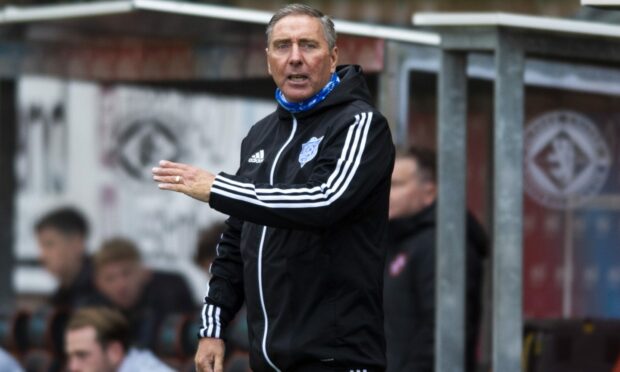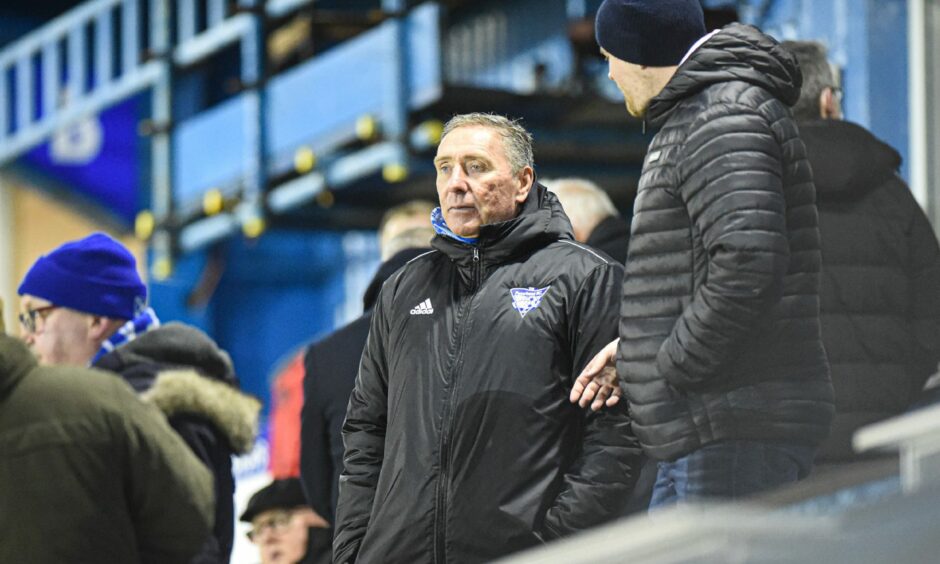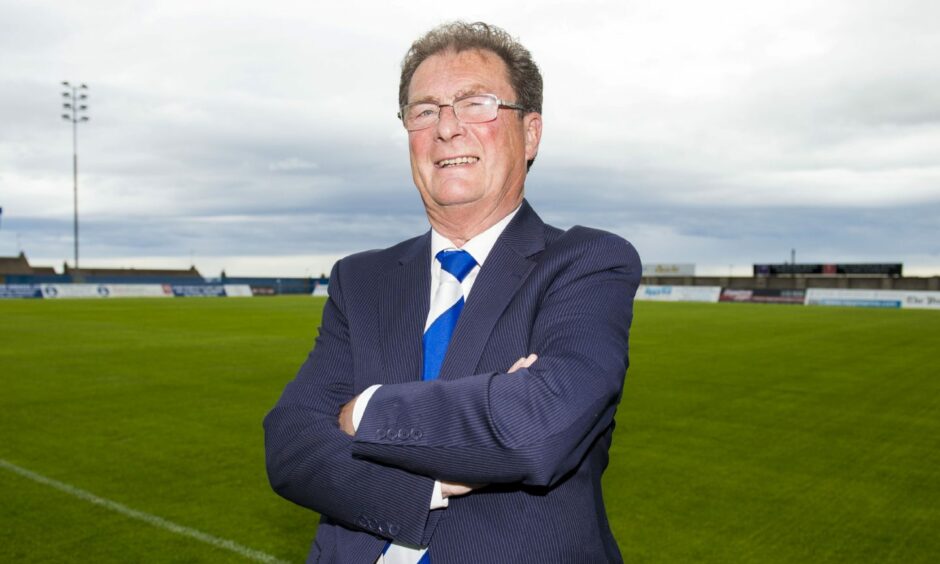The news of Jim McInally’s departure from Peterhead felt like the close of a remarkable, eventful chapter.
The end of his 11-year tenure, which was announced on Monday, maybe did not come as a surprise, given Peterhead’s struggles this season.
But the question now is where do the club go after the departure of a man who had done so much to make the Blue Toon a competitive outfit?
Given his longevity, it is no surprise he had a huge influence on how the football operation ran. He was manager, director of football, scout and player liaison all rolled into one.
He would go in to bat for Peterhead and other part-time clubs if he felt they were being slighted and dedicated much of his free time to the betterment of his side.
Sad to hear that – loved watching him play x https://t.co/EOhjkCdZbq
— Lorraine (@reallorraine) November 14, 2022
Balancing the geography of the playing squad was always a massive challenge. The pool of players available in the north-east is not big enough for Peterhead to have a squad full of locals, so the net had to be cast further afield.
You had a group of players based in Aberdeen and others in the Central Belt. Training had been split into separate groups to accommodate their needs and ensure that aside from travelling up to Peterhead every other Saturday, their commutes were kept to a minimum.
This will be one of the biggest challenges for the new man coming in: do you try to keep the geographical structure of the squad the same or veer down a different path?
It was a testament to McInally and his assistant Davie Nicholls and the relationship they forged with players that those from outwith the north-east kept coming back.
Scott Brown, Simon Ferry, Andy McCarthy and Derek Lyle came from Glasgow season-on-season to turn out for Peterhead. Greg Fleming and Willie Gibson did it from Dumfries.
When the core of the squad left en-masse in the summer – it was bound to happen at some stage given the short-term contracts Peterhead operate on – the task of replacing them was going to be massive.
This season it just has not worked. A slew of injuries to key players – McCarthy, Hamish Ritchie and Russell McLean have all missed most of the campaign – have not helped but while some tried and tested players, like Ryan Dow, Ryan Strachan and Paul Dixon have been brought in, the recruitment has been more miss than hit.
A few years ago McInally might have taken more of these struggles to heart. During the 2018-19 run to the League Two title he was having sleepless nights but since starting work for a pharmacy in Broughty Ferry, it had given him a broader perspective on life.
This should not be mistaken for any sort of complacency or lack of care towards Peterhead. Few people sacrificed as much as he has for the club. It was just now he was able to find a balance between personal and professional.
I may be a little biased because in my dealings with him, he was always spot on. You could chat away on and off-the-record about things involving Peterhead, Scottish football or life in general and there would always be a line in there for you. I like to think there was a mutual trust there.
McInally had contemplated walking away previously after disappointments but chairman Rodger Morrison had always managed to persuade him to stay on.
But now the time has come to find his successor and Peterhead are at a crossroads.
It is already looking like a significant task to keep them in League One but if they did stay up, they would be punching above their weight.
The oft-rumoured significant budget is not there, when more finance may have been available in the past. The Blue Toon are fighting for survival against full-time opposition who have bigger fanbases and more resources.
If they were to go down it would not be a disaster. The new manager would have a fresh platform to rebuild.
If he were able to keep them in the division, it would be a small step in filling the biggest of shoes left by McInally’s departure.


